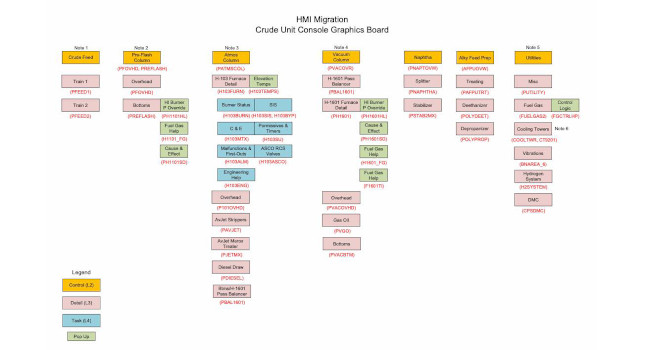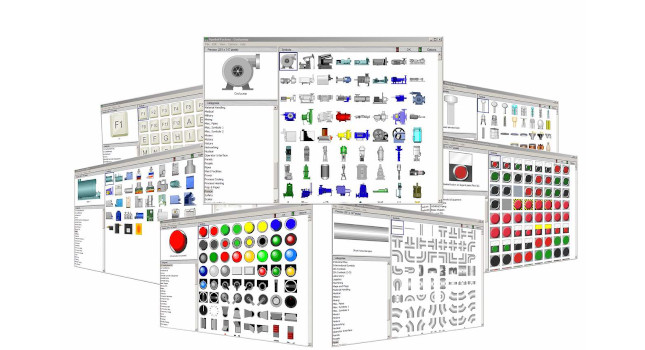How does a temporary transfer affect pay rate?
The day stockroom attendant Gail Griffen was granted a two-week leave of absence to help organize and straighten out family affairs after her father’s death, maintenance foreman Mike Rizzo approached Alison Garth.
“Do you think you can handle Gail’s job?”
“No problem,” Alison replied.
Three employees were employed in the stockroom: Gail Griffen, Alison Garth and one other assistant. Garth performed well during Griffen’s absence. A temp was brought in the fill the gap.
A week later on Friday, following the disbursement of paychecks, Garth appeared at foreman Rizzo’s desk.
“What’s the problem?”
Garth presented her paycheck. “I was paid at the same rate I received before taking over Gail’s job.”
“The transfer was temporary,” Rizzo replied. “It doesn’t call for a rate increase.”
Garth disagreed and requested a ruling from Mr. Johnson.
QUESTION: Is Garth entitled to a rate boost for the time she took over Gail’s job?
JOHNSON’S DECISION : “The contract is silent regarding this issue,” plant engineer Roy Johnson told the foreman after having been briefed on Garth’s request. “Based on other cases I’ve seen, barring specific contract language to the contrary, Garth is entitled to the increase.”
Don’t forget about enlisted employees
When an Army recruiter convinced instrument mechanic Charley Duff that military service would be not only patriotic, but would provide educational opportunities as well, Duff signed up on the spot.
Duff’s supervisor Jake Kramer wished him luck and arranged a small luncheon party in his honor.
That was three years ago. Duff served in Iraq and received a leg wound while on active duty. Two weeks ago, walking with the support of a cane, the mechanic reported to the plant and informed Kramer he was ready to resume his old job.
“We’d love to have you back,” the supervisor replied, “but that job has been filled. Why don’t you fill out an application for reemployment? We’ll keep it on file and the next vacancy that comes up will be yours.”
The answer didn’t satisfy Duff. “That’s in violation of a federal law that protects the rights of workers who leave their jobs for military service.”
“I’ll check it out with Mr. Greenfeld and get back to you,” Kramer replied.
QUESTION: How would you resolve this situation?
GREENFELD’S DECISION : Plant engineer George Greenfeld’s first step was to ask Kramer if there was any job Duff could fill. Kramer called nothing to mind and replied that there was no place on the T.O. for another instrument mechanic.
The P.E.’s next step was to call Duff to his office and explain the situation.
“So where does that leave me?” the mechanic wanted to know .
They discussed options back and forth and finally agreed on a cash settlement that satisfied Duff.
Conclusion: When an employee quits to join the service, say “So Long,” not “Goodbye,” because the chances are good he’ll be back.
Sick pay accrues, even while on leave
“You gotta be kidding,” maintenance supervisor Fred Haldee exclaimed, when welder Grade II James Kohl put in for sick pay over the telephone. “You’re on a leave of absence for Pete’s sake.”
“Makes no difference,” Kohl retorted, “I’m still entitled.”
His boss told him he was dreaming, but Kohl refused to give in. “Sick leave or not, I’m still on the active payroll.”
“How can you be active when you’re nowhere in sight?”
“Do me a favor,” the welder persisted, “check it out.”
“Okay, if it makes you feel any better.”
Haldee made a beeline for the plant engineer’s office.
QUESTION: In your view, does Kohl have a valid claim?
MURDOCK’S RESPONSE : “On duty or not on the job,” plant engineer Gray Murdock replied after being filled in on the welder’s claim, “the guy is still on the active payroll. I’ve run into cases like this in the past. Since the contract specifies sick pay for all employees on the active payroll, awards have been granted by arbitrators. It’s no big deal; authorize the employee his sick pay.”
Outside charges can affect employment status
“Hey Nick, did you see this?” Assistant maintenance supervisor Charley Richardson tossed a copy of the current Herald on his boss’s desk. The paper was open to Page 4 where a subhead read: Local man convicted of theft. A photo of the thief appeared at the top of the two-column item. Maintenance supervisor Nick Delgrado recognized Sheldon Pankowski immediately.
Delgrado shook his head and sighed. “How come I’m not surprised?”
Pankowski, a marginal employee at best, held down a part time after-hours job as busboy in a local restaurant. Previously under suspicion for merchandise “shrinkage” at his full-time job that management was unable to prove, the word out was to “keep an eye peeled on this guy.” As the Herald’s story disclosed, “After clocking out 4 p.m. from his daytime job, he had been caught cold stealing tips at the restaurant.” He was sentenced to three years probation.
“This does it,” Delgrado remarked.
Pankowski returned to work two days later. The supervisor lost no time filling out a dismissal notice specifying that its cause was the item that appeared in the paper. He handed it to the utility worker when Pankowski showed up at his desk to inquire why his timecard had been removed from the rack.
“The reason is stated clearly enough. Nice knowing you, Shel. No hard feelings. Good luck.”
Pankowski snapped back indignantly, “You can’t fire me for an incident that occurred outside the job.” The utility man threatened to sue.
QUESTION: Is Delgrado within his rights firing Pankowski?
DONNELY’S VERDICT : “The dismissal stands,” plant engineer James Donnely told Delgrado. “Members of the community come in frequently to make purchases or seek information. The public nature of Pankowski’s theft disclosure would damage our image and weaken trust in the company if we kept this guy on.”
Success — even if there’s not a sweet smell
When maintenance supervisor Frank Costello received a rush call from the lab with regard to a short in an electrical line he decided to assign two electricians — Pete Morrison and Harry Rausch — to the job.
Morrison looked like he had just been assigned to outhouse duty.
“What’s the beef?” Costello said.
“No beef. I can’t work with that guy. No way.”
“Why not?” his boss asked, as if he didn’t know.
“Because he smells like a cesspool. I can’t believe he doesn’t know it. And I’m sure as hell not the one to tell him about it.”
Morrison was right. He wasn’t the one.
Costello sighed. “Okay, I’ll assign someone else.”
QUESTION: In the supervisor’s case, what action would you take to deal with this problem?
TODMAN’S RESPONSE : Costello made a beeline for his boss’s office and dumped the problem in the lap of plant engineer Arthur Todman who raised his eyes to the ceiling. “Not again,” he said. He had run into this problem before more than once.
On rare occasions body odor is caused by a medical situation. More often it is simply a matter of poor hygiene.
“Here’s what I’d suggest,” he told Costello. “I’ll contact personnel. They’ll know what to do.”
When Rausch clocked out for lunch that day he found a note attached to his time card informing him that his medical record was incomplete and instructing him to report to the medical office. There he was examined, advised to bathe every day and given a bag containing soap, shampoo, and deodorant.
Todman told Morrison, “This at least avoids a direct embarrassing confrontation with his super-visor and coworkers and ensures a message he can’t afford to ignore.”
Overlooked error change doesn’t make the grade
It was long past time for his classification to be upgraded, electrician Grade II Alex Wong decided one day. With this thought in mind, he approached maintenance foreman John Scholl.
That was six years ago. At that time, Scholl told Wong he would check over the record and let him know. Two days later he gave Wong the good news. He had decided to give him a crack at Grade I with the pay raise that entailed. “If you show that you have what it takes, you can keep it. If not you’ll be bumped back down.”
For six years, Wong enjoyed the upgrading. Then one day he was informed by his boss that the accounting department, after reviewing the record, revealed that the change in grade had been made in error and that Wong would be reassigned to Grade II.
The electrician was stunned. “After six years,” he groused. “You gotta be kidding.”
Scholl shook his head. He told Wong that a check of the record revealed that he had been filling the same job assignments as Grade I that he had been assigned as Grade II. Certain normally Grade I jobs had to be assigned to someone else because Wong lacked the skill and experience to fulfill them.
“It’s not fair,” the electrician protested. “I’m not sitting still for it.”
QUESTION: Is the company within its rights to downgrade Wong.
BERG’S RESPONSE: “Keep him at Grade I,” plant engineer Al Berg instructed the supervisor. “While his performance appears to rate him no higher than Grade II, six years is too long a period to wait before correcting a classification error. There was more than ample time before that to investigate and correct the mistake.”
Can you put a rush job on hold to process a grievance?
When two problems erupt simultaneously which one gets the precedence? Electrician first class Don Strong thought he knew the answer. In addition to his work classification, Strong also served as head of the grievance committee. While on his way to the lab to investigate a complaint of repeated short circuits that interfered with a rush job, he was interrupted by Charley Langtree, a welder who claimed that his pay had been shortchanged. His supervisor disagreed and ordered him to get back to work.
Strong reviewed the situation and felt that Langtree had a good case.
“What do you want to do?” Strong asked.
“File a grievance, that’s what.”
Strong called maintenance foreman Gus Griese and asked him to assign someone else to the lab job.
“How come? You sick or something?”
“I have to work with Charley Langtree to prepare a grievance.” He filled him in on Charley’s complaint.
“I have no one at the moment to replace you, and that lab problem is urgent. Charley’s grievance can wait until you check out what’s causing those shorts.”
“No way,” Strong protested. “The grievance comes first. The contract allows me time off to deal with employee grievances.”
When Griese disagreed, the matter wound up on plant engineer Bob Altshuler’s desk.
QUESTION: In your opinion should Langtree’s grievance be given priority?
ALTSHULER’S DECISION : “The lab problem comes first,” Altshuler told Griese. “Employee rights under the grievance procedure cannot preempt operating efficiency. No evidence was presented to prove that delaying Langtree’s grievance in this case would harm him in any way.”
Listen up and check your CQ rating
Most plant engineers would agree with consultants that communications problems create the biggest headaches for supervisors. When did you last check your Communications Quotient (CQ) rating? The following checklist will help determine how you stand.
| YES | NO | ||
| 1. | Do you make a conscientious effort to expand your vocabulary? | ___ | ___ |
| 2. | Do you feel comfortable writing letters? | ___ | ___ |
| 3. | Do you respond in good time to letters you receive? | ___ | ___ |
| 4. | Do you occasionally submit suggestions to your boss? | ___ | ___ |
| 5. | Are you a good listener? | ___ | ___ |
| 6. | When a group discussion is in progress, are you more often a participant than observer? | ___ | ___ |
| 7. | Do people often come to you for advice? | ___ | ___ |
| 8. | Are you at ease (relatively) when asked to make a speech? | ___ | ___ |
| 9. | Do you feel that your effectiveness as a communicator has helped advance your career? | ___ | ___ |
| 10. | When a technical problem develops are you usually able to make the situation clearly understood? | ___ | ___ |
| Total No. of YES Answers | ___ | ||
| Calculate Your CQ: | |||
| 10 : You as a super communicator. | |||
| 7-9 : Better than average | |||
| 6 or less : Listen up, and listen better. | |||



